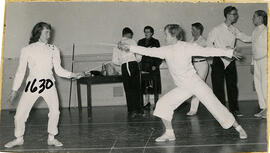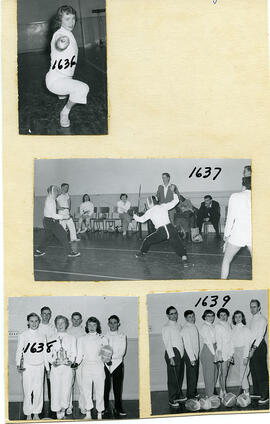Learned Societies Conference - Display
- A-10038
- Item
- [between 22 May 1979 - 8 June 1979]
View of Chinese Popular Religion and Folk Religious Art display mounted by the Department of Far Eastern Studies during the Learned Societies Conference, U of S, 22 May-8 June 1979. Display located in Main Library; panels with pictures and objects on tables.
Bio/Historical Note: Learned Societies, a term applied in Canada to the large group of scholarly organizations that hold conferences annually from late May to mid-June at a different university location each year. Society members come not only to hear and discuss scholarly papers on the latest work in their fields, but also to renew contacts and share common concerns. The gathering of these associations in one place over one period is distinctively Canadian and owes more to practical evolution than to planning power. Selecting one site with suitable university accommodation was an answer to Canadian distance that allowed scholars more economical joint arrangements, let them attend meetings of societies besides their own, and encouraged them to visit varied geographical areas. The older Royal Society opened the way by moving from its Ottawa base to annual conferences at Montréal, Kingston or Toronto. Younger, more specialized associations - such as those in history, political science and economics - joined in, holding their own meetings along with, or just following, the senior scholarly society. By the 1930s the practice of holding an annual learned-conference period at a different site each year was well established, though such sites were usually in central Canada, where most larger universities were located. But in 1949 "the Learneds" went to Halifax, and soon afterwards to Winnipeg, Edmonton and Vancouver. In April 1996, the conference name was changed to the Congress of the Humanities and Social Sciences.


